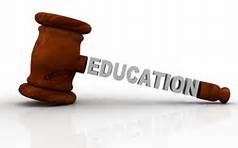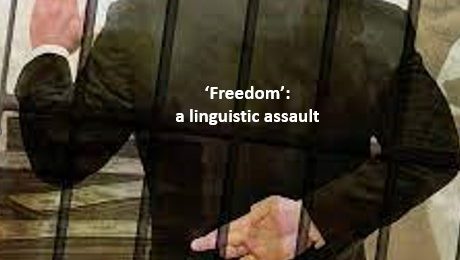
I was recently speaking with a good friend and respected civil trial lawyer. During our conversation we talked about litigation generally and trials and administrative hearings specifically. The discussion came around to the topic of whether some novice and intermediate litigation lawyers may be actively avoiding trials (to the detriment of their clients in some cases), or struggling on how to best represent their clients at an actual trial or hearing.
The Advocates Journal has noted that there are “fewer and fewer lawyers who actually know how to conduct a trial” and that under the “prevailing business model, every new generation of lawyers will have less experience than the last and thus will be increasingly incapable of properly and effectively trying a case”.[1] American legal commentator Robert Burns has stated that “one of the identified causes for the death of the trial is the sharp decline in trial skills among bar members and the resulting aversion to bringing cases to trial”.[2]
Toronto lawyer Jeffrey Leon has indicated that from an ethical perspective, “the issue is one that goes to the essence of competence. We hold ourselves out as trial lawyers. If we are not prepared to go to court, because we don’t know how, we are letting the ‘fear of trialing’ distort our judgment. We are not providing competent service to clients. We need to acknowledge this fear factor and deal with it”.[3]
The American College of Trial Lawyers, composed of the best of the trial bar from the U.S. and Canada, addressed this very issue in a remarkable paper released in 2004:[4]
“A prominent federal judge once suggested that, if a practicing litigator spends eight years without trying a case, thereafter he or she will earnestly avoid any trial to avoid exposure of the lack of trial skills.
…
One aspect of this problem might be termed the ‘fear of trialing.’ This is an issue that is very much related to competence. Young litigation lawyers are held out to the public as being trial lawyers. If they are reluctant to go to court because they do not know how to try a case, then their judgment becomes distorted and they are not providing competent service to clients. In the end, we will have “trial lawyers” who do not want to try cases because of their lack of courtroom exposure.
…
A lack of trial experience can also contribute to decreased skill in the context of pretrial depositions [examination for discoveries] and document production. It is trial experience that assists the trial lawyer in knowing what is relevant and hence in knowing what to focus on during the pre-trial phase of litigation. It is trial experience that allows the trial lawyer to understand how to analyze a case and to use that analysis to formulate a pre-trial plan.”
The American College of Trial Lawyers concluded that “the Vanishing Trial phenomenon is real”, and recommended the “importance of mentoring and creating opportunities for young lawyers to get trial experience”, to “sponsor trial competition programs”, and promote the teaching and development of trial advocacy skills in programs and projects.[5]
Trial advocacy training programs are encouraged for trial lawyers practicing in civil litigation and criminal law. There are a number of recommended training programs offered by qualified institutions in the U.S. (ie. National Institute of Trial Advocacy: NITA) and Canada (ie. Intensive Trial Advocacy Workshop offered annually at Osgoode Hall Law School; The Advocates’ Society).
In addition to formal programs, there are a number of excellent trial advocacy legal texts that can teach, train and guide trial lawyers in learning, developing and improving tactical trial skills and advanced advocacy concepts.
I have set out below a suggested reading list of excellent legal works that I and respected colleagues have read and utilized over the course of our legal careers. Each text on advocacy presents a realistic and state of the art approach to learning, developing, and most importantly, implementing trial advocacy skills. These texts are recommended reading for trial lawyers of all experience levels, from novice to intermediate to expert:
- Cross-Examination: Science and Techniques (2nd, 2004), by Larry Pozner and Roger Dodd
This American text is the best legal work on trials and trial advocacy that I have read. It is a ‘how-to’ book of ‘best trial practices’. The text demystifies the trial process and brings the cross-examination skill-set into clinical perspective – it treats trial advocacy as a science with “firmly established rules, guidelines, identifiable techniques, and definable methods”[6] which can be described, practiced and learned by any and all trial lawyers willing to learn.
The text is an excellent tool to build competency in an era of fewer trials.
The authors Pozner and Dodd do not treat cross-examination as a single phase during the trial, but rather as a fundamental tool for trial planning. Pozner and Dodd are nationally renowned trial lawyers in the U.S., and encourage trial lawyers not to plan a trial by starting with the closing argument (setting out in their text the “drawbacks of closing argument preparation systems”), but rather focus on “cross-examination centered preparation”.
Further, the authors advocate a rethinking of the goals of modern cross-examination, proposing that a “constructive” cross-examination approach is a more effective strategy for a successful result at trial than an overall philosophical focus on “destructive” cross-examination.[7] Although “there are elements of attack within cross-examinations” (ie. to show an adverse witness’ direct testimony is out of context, exaggerated, or simply false), from a fundamental perspective the authors state that “cross-examination is an opportunity to elicit favourable facts as opposed to simply attacking unfavourable testimony”. The authors emphasize that “the modern advocate must condition [themselves] to expose and develop the truth of the case through witnesses called by the opponent”. Cross-examination is emphasized as a “unique opportunity to build the cross-examiner’s theory of the case and to insert helpful facts into the story”. The good trial lawyer can and should build their case through the opponents adverse witnesses (which evidence is seen by a judge or jury as particularly persuasive in establishing major elements of the case), as well as their own witnesses in direct examinations. The authors address an array of special techniques and strategies to elicit favourable testimony from an unwilling witness to support their trial theory (“constructive” cross), and of course address appropriate techniques to undermine and/or impeach the testimony of an adverse witness if and when required (“destructive” cross).
The text focuses on streamlining trial preparation (time management and key tasks) to facilitate development of a persuasive fact-based theory (and supporting themes), and the advocacy skills necessary to persuasively advance the theory and themes to a successful result for the client.
Pozner and Dodd set out key methodologies for the success of a trial lawyer (strategies, tools and efficient techniques), with a clear understanding of the specific skills required for a trial lawyer to thrive and obtain successful results for their clients. The authors’ secret to effective cross-examination is hard work and preparation. The authors state:
Thorough preparation, mastery of technique, and execution of a solid plan produce more courtroom victories than all the flash, glitz and strokes of supposed courtroom brilliance combined.
Pozner and Dodd’s’ combined 50 plus years of trial experience is essentially packed into a ‘how to’ book. The text discusses “developing a theory of the case”, “cross-examination focused investigation”, “strategy, preparation, and organization of cross-examination”, “relationship of Opening Statement to cross-examination”, the “only three rules of cross-examination”, “chapter method of cross-examination”, “page preparation of cross-examination”, “sequences”, “trilogies”, “loops, double loops and spontaneous loops”, impeachment, controlling the “runaway witness”, “time-saving aspects of cross-examination centered preparation”, communicating the theory in the opening, the cross and the closing, and much more.
The methodologies laid out in this book support appropriate time management (for trial preparation), mastery of trial techniques, and execution. This text has the potential to improve the skillset of all trial lawyers prepared to invest the time and hard work.
- On Trial: Advocacy Skills, Law and Practice (2 ed., 2004), by Geoffrey Adair
A strong practical legal text by the eminent Toronto trial lawyer Geoffrey Adair. This text has the potential to dramatically assist you in your career as a trial lawyer. I first read this book in 1992 or 1993 as a young lawyer and it is on my desk today. [8] It is a ‘go to’ book for many top trial lawyers.
On Trial partners well with the concepts from the American text Cross-Examination, and in particular provides detailed “how to” instruction, addressing all the important elements of a Canadian trial: theory of the case, demonstrative evidence and exhibits, opening statements, direct examination, cross-examination, expert witnesses, re-examination, and the closing address.
Adair’s comprehensive and concise advocacy text is for lawyers from first year of practice to thirty. As one colleague has said: Get this book if you are a trial lawyer.
- Fundamentals of Trial Techniques: Canadian Edition (2nd, 2001), by Thomas Mauet, Donald Casswell, and Gordon Macdonald
I still have my first Canadian edition – dog eared and pages falling out – in my briefcase. Ensure you get the Canadian edition of the Fundamentals of Trial Techniques, which is based on the format of Mauet’s U.S. legal text, and very nicely embraces Canadian trials within the universal trial advocacy concepts.
This legal text sets out a step by step process for every requirement of a trial, specifically addressing opening statements, direct examination, entering exhibits, cross-examination and impeachment, and the closing address. Fundamentals of Trial Techniques will provide appropriate guidance for a trial lawyer to develop a winning case theory, and present their case as a story – powerfully and persuasively – through all phases of trial.
This is one of the best advocacy texts for junior to intermediate trial lawyers, teaching and providing guidance with an emphasis on examples.
- The Law of Evidence in Canada (4th, 2014), by John Sopinka, Sidney Lederman and Alan Bryant
I recommend this text to all lawyers, whether they are a trial lawyer or not. Although there are a number of evidence texts and/or e-services you may wish to utilize,[9] this is generally considered the seminal work with respect to Canadian evidence law. Sopinka’s Law of Evidence should be available to you at all times in your practice, but in particular must be with you at trial to address evidentiary issues that may arise at any time in this complex and ever changing area of the law.
With these four legal texts, you will be positioned to be more confident and effective at trial. These texts will guide, teach and train the novice and intermediate trial lawyer, and support even the most experienced litigator.
I am confident that these legal texts will become important resources for you that will be consulted time and again over the years, in trial after trial. Good luck.
Eric Sigurdson
Endnotes:
[1] Ryan Wozniak, “Preserving the art of advocacy: Why we need to change how we practice law”, Advocates Journal, September 2013, p. 19.
[2] Robert Burns, Advocacy in the Era of the Vanishing Trial, Kansas Law Review, Vol. 61, Number 4, April 2013, p. 893.
[3] Jeffrey S. Leon, Rethinking how we Litigate to ensure we continue to Litigate.
[4] Committee on the Future of Civil Trial, The ‘Vanishing Trial’: The College, the Profession, the Civil Justice System, American College of Trial Lawyers, October 2004, p. 22-23.
[5] Committee on the Future of Civil Trial, The ‘Vanishing Trial’: The College, the Profession, the Civil Justice System, American College of Trial Lawyers, October 2004, p. 24-25.
[6] Pozner and Dodd, Cross-Examination: Science and Techniques (2nd ed., 2004).
[7] I would note that from my perspective, historically trial lawyers have always sought to gain some favourable testimony from their opponents during some part of a cross-examination. However, Pozner and Dodd’s approach or philosophy – to the extent possible in any particular case – is to always look to expose and develop the evidence (the truth of the case in line with the advocate’s trial theory and themes) through cross-examination at every opportunity, and not simply wait for their own friendly witnesses during direct examinations.
[8] Geoffrey D. E. Adair, On Trial: Advocacy Skills, Law, and Practice (1992).
[9] see Paciocco’s Law of Evidence (7th ed., 2015); and for strictly criminal law, see the authoritative classic McWilliams’ Canadian Criminal Evidence (5th ed., 2013).








